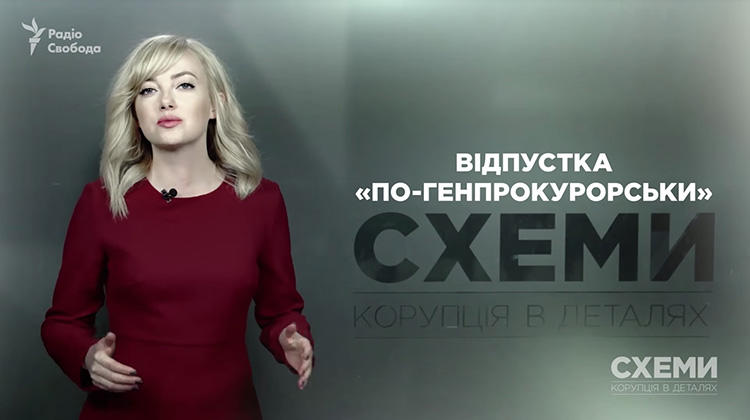New York, September 4, 2018–The Committee to Protect Journalists today condemned a Ukrainian court’s decision to grant the country’s prosecutor general’s office permission to access the phone records of Natalie Sedletska, a reporter, editor, and television presenter for Schemes, an investigative journalism project of the U.S.-funded Radio Free Europe/Radio Liberty’s Ukrainian Service.
On August 27, the Pechersk District Court of Kiev, at the request of the prosecutor general’s office, ordered Sedletska’s telephone service provider to hand over information, including text messages and location data, covering the 17-month period between July 2016 and November 2017, according to RFE/RL.
“The Kiev court’s decision to grant prosecutors access to Natalie Sedletska’s phone records is an affront to the principle of press freedom that the Ukrainian government purports to uphold,” said Gulnoza Said, CPJ’s Europe and Central Asia research associate. “Protecting sources is at the heart of newsgathering, and we call on prosecutors to stop this overreach so that journalists can safely do their work of holding the powerful to account.”
Sedletska is an award–winning journalist whose video investigations into alleged corruption have included the activities of the prosecutor general’s office, as well as senior members of the government. She is one of several Ukrainian journalists listed as a “witness” in the prosecutor general’s office probe of the possible disclosure of state secrets and pre-trial investigation data by the director of the National Anti-Corruption Bureau of Ukraine, Artem Sytnyk, according to RFE/RL. Sedletska was summoned to the prosecutor general’s office for interrogation in December, according to a post she published on Facebook at the time.
Sedletska told CPJ that the order grants the prosecutor general’s office the right to access her text messages and phone calls made using her telecom provider, as well as her location data. But she said it will not allow the prosecutor general’s office to obtain her physical phone, thus putting those text messages or phone calls made with encrypted messenger apps out of their reach.
RFE/RL spokesperson Joanna Levison called on the court to nullify the decision, which she said was excessive, in flagrant violation of international standards, and not in line with Ukraine’s commitment to protect the free press.
“That the request targets well over a year’s worth of data belonging to a prominent Ukrainian investigative journalist raises deeply troubling questions about the real intent of those seeking the information,” Levison said.
Anatoliy Popov, a lawyer for RFE/RL’s Ukrainian Service, said the court’s ruling “granted investigators access to a much larger amount of private journalist information than is necessary for a specific investigation,” adding that the news outlet “will respond with appropriate actions.”
